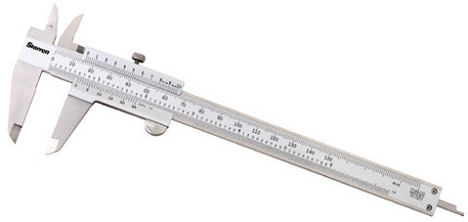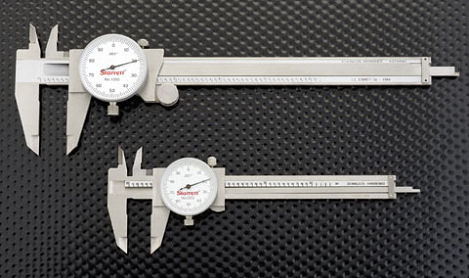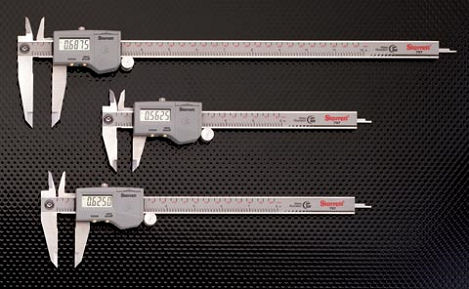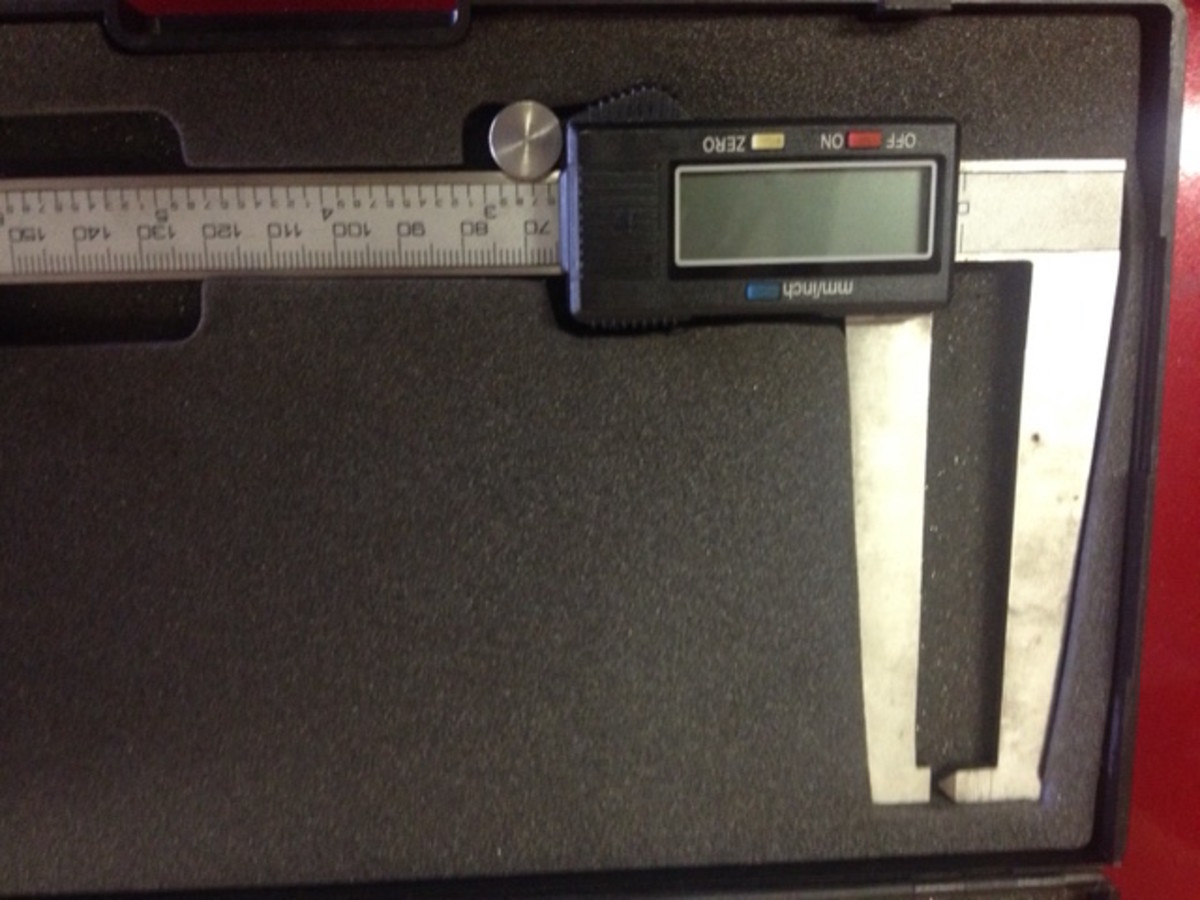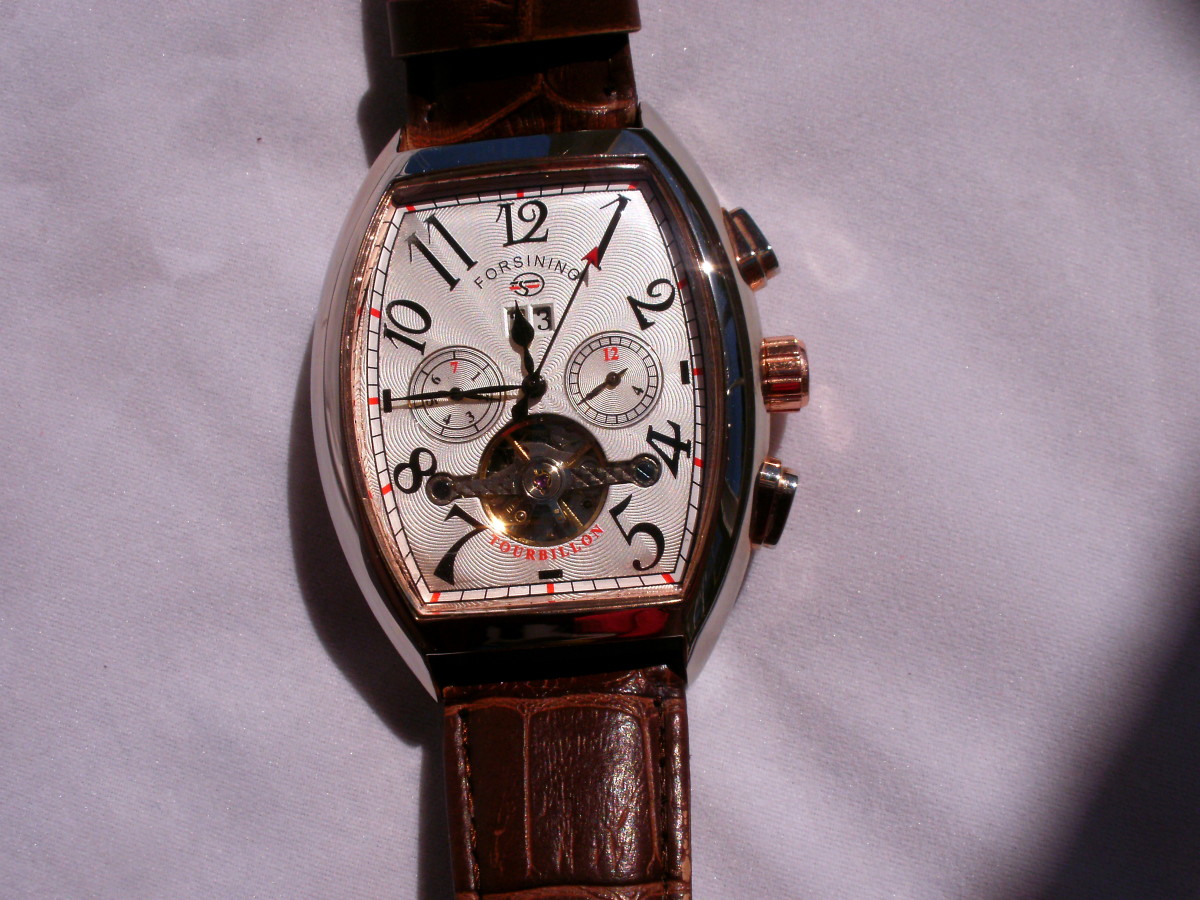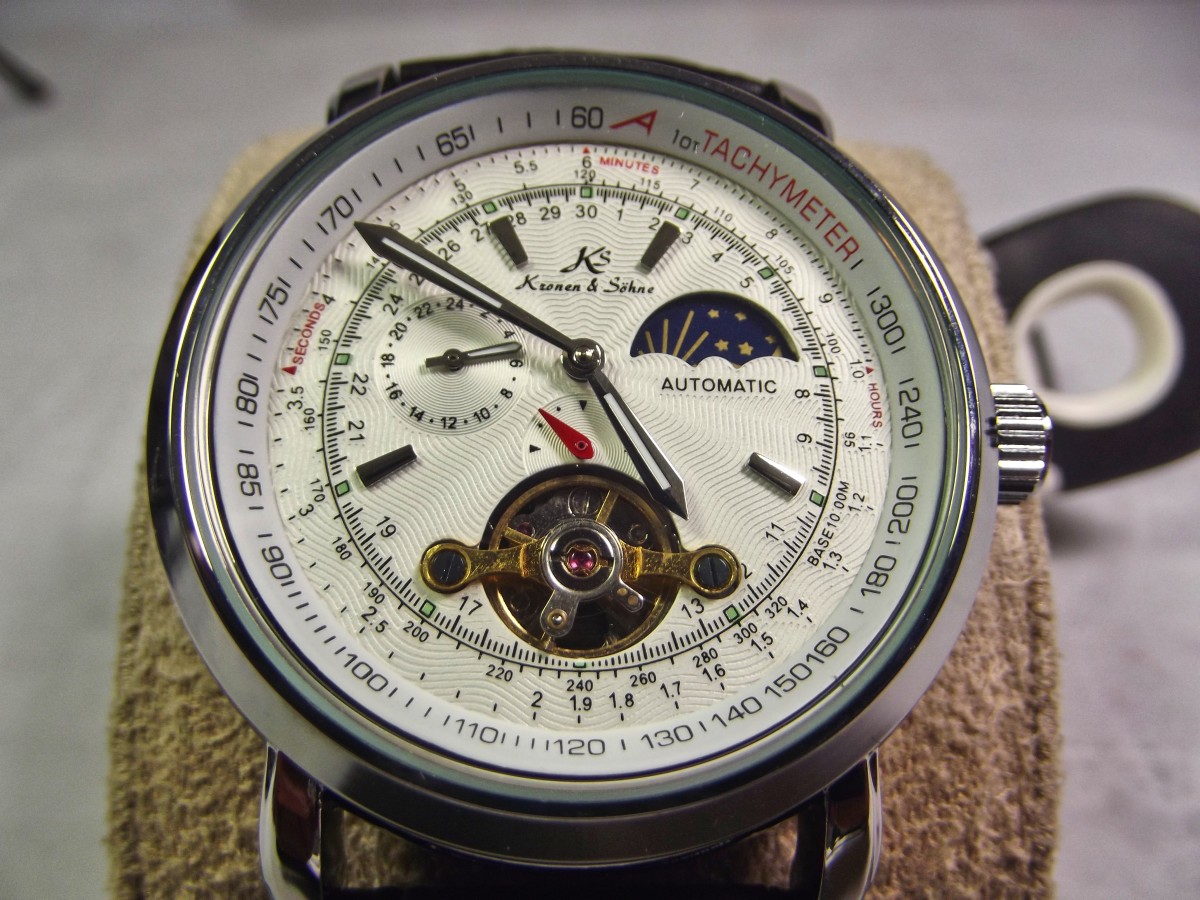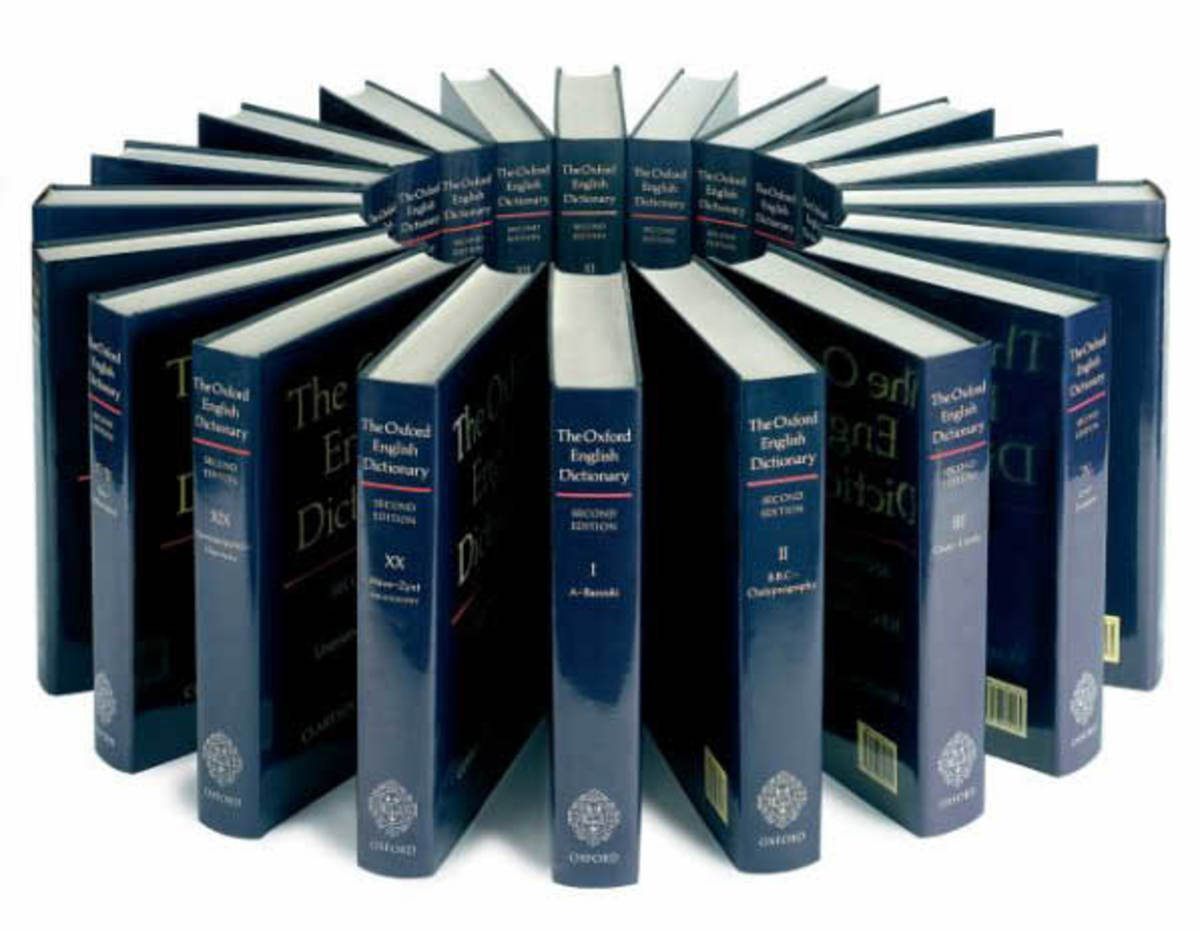How to choose the right caliper for your measuring job
General Information
Calipers
Calipers are used to precisely measure things. Yep, that's right, you too can measure anything you want with accuracy down to 0.0005"/0.01mm. Use this guide to purchase the right pair of calipers for any measuring task. Get a pair of calipers and those things you've been dying to measure will be well within your ability. This is not an exhaustive guide, but it will show you the basics.
There are 3 general types of calipers that will be discussed in this guide. There are more, but they are specialized and the common person won't have any use for them.
Vernier Calipers - The basic. These are the calipers for people that really enjoy math and are not willing to become confused easily. Ever use a slide rule? Similar concept. You can see what they look like in the first picture below. A few points on vernier calipers:
* No dial or display.
* Readings must be calculated with lined increments on caliper body.
* Hardest to read due misinterpretation.
* Shock resistant (unless they get bent they hold accuracy well).
* Least expensive - can be found for $3 - 10.
Dial Calipers - These calipers have a lined dial that shows the measurement...go figure. Look at the second picture to see what they look like. These are for people that are not comfortable doing math. All you need to do is add the slide measurement to the dial measurement and you're good to go. Some more about them:
* Uses a dial for display within 0.001"/0.025mm accuracy.
* 1 revolution on the dial = 0.100"/2.5mm (for most dial calipers).
* Dial display must be added to inch/mm measure on caliper body for final measurement.
* Mildly shock resistant (gear and rack may become misaligned due to a severe drop).
* Relatively easy to use.
* Increase in cost as compared to Vernier calipers.
Digital Calipers - Shown 3rd. Are you really not a math person? These are the calipers for you. The display show you exactly what you want to know. No fuss whatsoever. Just don't drop them and make sure you have some extra cash to buy those button cell batteries because you will end up leaving these calipers on by mistake a few times. What you need to know:
* Displays accurately to 0.0005"/0.01mm (debatable but definitely 0.001"/0.025mm)
* Absolute and incremental measurements (zero button).
* Most susceptible to damage from a shock.
* May loose accuracy if there is oil or dust on the caliper way.
* Takes small button batteries.
* Most expensive - can range from $15 - 100.
For all around use I recommend a good pair of dial calipers. It is what I use and what most machinists use. Digital calipers are ok as long as you treat them with care and keep them clean as they are the most susceptible to damage. Dial calipers are the best in my mind because you don't have to worry about changing batteries and they require less maintenance than digital ones.
Some quality/more expensive ($50-100)brands to consider:
* Starrett
* Fowler
* Mitutoyo
Avoid:
* Any caliper made from plastic.
* Calpiers that stick or are not smooth when in use.
* Calipers with glass ways (as they will most likely break if they are dropped).
Spending $50 on a set of calipers is a wise investment for anyone who needs to get accurate measurements on small parts. With care and consideration, they will last a lifetime.
Pictures and credit for pictures from www.starrett.com.
Caliper Pictures
